Dr. E. Edna Wangui, Associate Professor of Geography, is in Nairobi, Kenya, conducting research on how gender influences participation in a Kenyan ecosystem project.
She received a 10-month Fulbright Scholar award as well as an Ohio University Faculty Fellowship Award for the 2018-19 fall and spring semesters.
“I am already in Nairobi Kenya and excited to be starting next week,” she said as classes started on the Athens campus. “The Fulbright Scholarship that I received has two components – teaching and research. As part of the award I will teach graduate students at the Institute of Climate Change and Adaptation at the University of Nairobi. I will also do research on sustainable land management practices in the Thika/Chania watershed.”
The Teaching Component: Training Next Generation of Development Scholars on Climate Change
“I will be a part of a multi-disciplinary team of academics who will train the next generation of development scholars and practitioners in the use of social science methodologies to understand responses to climate change, one of the major global challenges of the 21st century,” Wangui said. This includes team-teaching master’s and Ph.D. students in the Climate Change and Adaptation interdisciplinary program at the University of Nairobi during the fall and spring semesters of 2018-19 academic year.
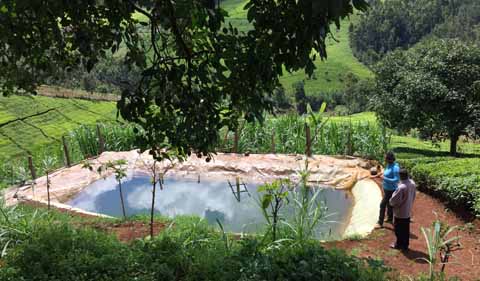
This is a lined water pan filled with water harvested from rooftops. The water is used for irrigation during the dry season.
The Research Component: Payment for Ecosystem Services in the Upper Tana Basin: Gendered Analysis of the Nairobi Water Fund
“Payment for ecosystem services (PES) is a market-based approach to conservation that has been piloted around the world. The basic idea behind PES is that beneficiaries of an ecosystem service compensate resource managers who ensure the provision of the service,” Wangui said. “Some scholars have observed that PES schemes are spreading without critical examination of the potential implications for social and economic stratification. Such observations have been supported by academic literature that warn about the potential for PES to reproduce existing inequalities in the access of ecosystem resources and services.”
There is a small but growing literature on the role of women in PES that indicates that women are frequently excluded. In other instances, their inclusion has happened in a manner that has reduced their decision-making power within the household.
“One of the most common types of PES schemes involves local land managers in the conservation of watershed services,” she said. “The Nairobi Water Fund focused on the Upper Tana River in Kenya exemplifies such a scheme.”
The Tana is the longest river in Kenya, covering an area of approximately 17,000 square kilometers and with a population of about 5.3 million. The Upper Tana basin provides several ecosystem services. It serves the most agriculturally productive region in Kenya, providing half of the total hydroelectric power used in the country and 90 percent of the water used in Nairobi, a city of more than 3 million people.
“The Nairobi Water Fund engages major downstream water users—principally large, private-sector companies—to contribute to a fund that supports water conservation activities among small-scale farming households in the upstream farming zones. The Thika/Chania watershed is the most critical for Nairobi’s water supply and is the focus of my research,” Wangui said.
“My brief field visit and exploratory interviews in the Thika/Chania watershed in May 2017 confirmed that women were not participating in significant numbers and that many would like to be more systematically included. As a Fulbright Scholar I will work with others to understand the barriers to inclusion in PES and their specific gender dynamics. Understanding the gender processes and outcomes of the Nairobi Water Fund project will contribute to the identification of best practices for PES schemes more generally. The results will also help inform theoretical understanding of the dynamics of participation and social exclusion in the practice of PES in Kenya and other parts of the world.”


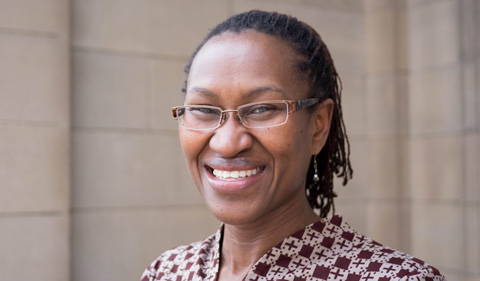
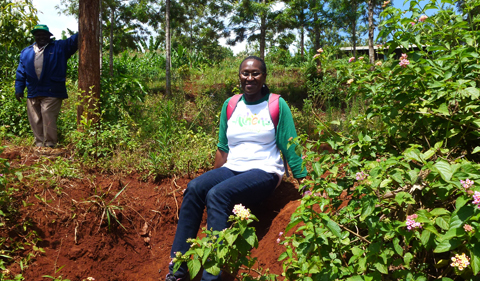
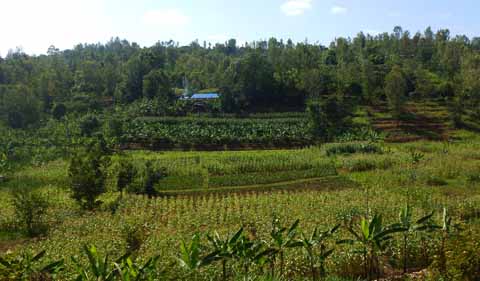
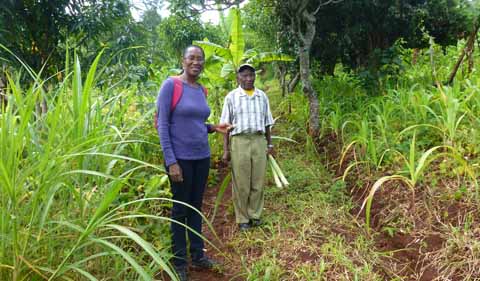
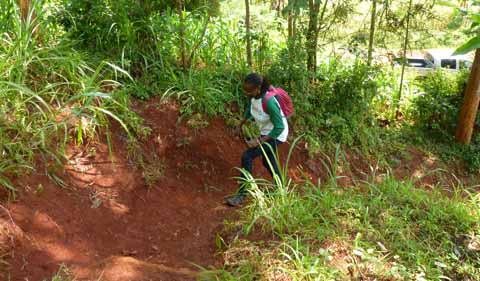
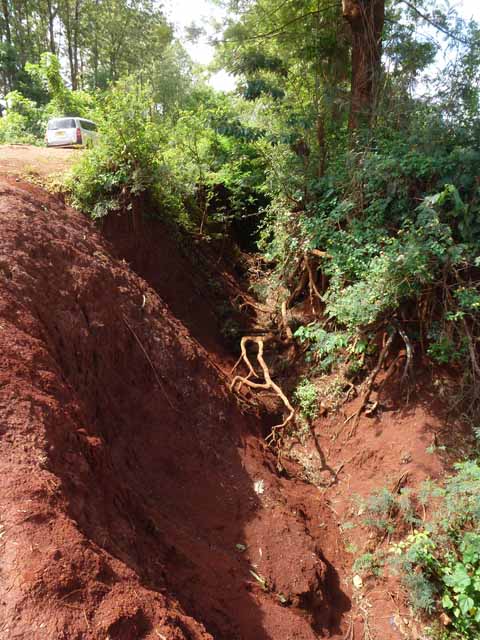
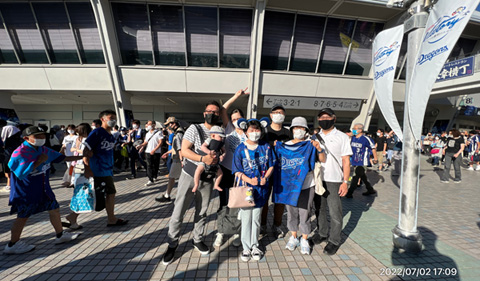
















Comments